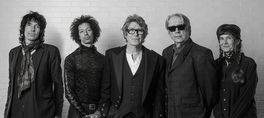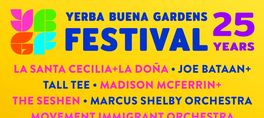Great American lutenist Paul O'Dette returns to the Bay Area for a rare recital of Renaissance masterpieces at St. Mark's Lutheran Church presented by San Francisco Performances.
Few instrumentalists establish themselves with such firm authority as Paul O'Dette has on the lute. In fact, one writer described him as "the clearest case of genius ever to touch his instrument." In fact, O'Dette helped define the technical and stylistic standards to which twenty-first century performers of early music aspire. In doing so, he helped infuse the performance practice movement with a perfect combination of historical awareness, idiomatic accuracy, and ambitious self-expression. "I remember when I first started playing the lute," O'Dette once recalled, "the common perception of Renaissance music was that it was kind of pre-expression-that people didn't use dynamics, they didn't use tone colors...[But] the more we've learned, we've realized that in fact all of these expressive devices were being used throughout the 16th century." O'Dette deserves much of the credit for bringing this aspect of early music to the fore of performance practice.
Perhaps O'Dette's style can be described as deeply human. Crucial to his sound is his awareness of the ethnic and dance topics that figure into the music. The dance gestures that correspond-albeit sometimes in only a stylized way-to the musical figures, find expression in the contour and phrasing of O'Dette's lines. He makes another enlightening comparison, as well, one based on writings contemporaneous to the music: "All of the 16th century sources say that the best instrumentalists are those who can make you believe you are listening to words-that the best instrumental playing strives to imitate the voice in every way possible." This appealing (and historically informed) philosophy of performance and O'Dette's impeccable technique, have made his performance of early music a creative, rather than a curatorial, endeavor.
show less
Few instrumentalists establish themselves with such firm authority as Paul O'Dette has on the lute. In fact, one writer described him as "the clearest case of genius ever to touch his instrument." In fact, O'Dette helped define the technical and stylistic standards to which twenty-first century performers of early music aspire. In doing so, he helped infuse the performance practice movement with a perfect combination of historical awareness, idiomatic accuracy, and ambitious self-expression. "I remember when I first started playing the lute," O'Dette once recalled, "the common perception of Renaissance music was that it was kind of pre-expression-that people didn't use dynamics, they didn't use tone colors...[But] the more we've learned, we've realized that in fact all of these expressive devices were being used throughout the 16th century." O'Dette deserves much of the credit for bringing this aspect of early music to the fore of performance practice.
Perhaps O'Dette's style can be described as deeply human. Crucial to his sound is his awareness of the ethnic and dance topics that figure into the music. The dance gestures that correspond-albeit sometimes in only a stylized way-to the musical figures, find expression in the contour and phrasing of O'Dette's lines. He makes another enlightening comparison, as well, one based on writings contemporaneous to the music: "All of the 16th century sources say that the best instrumentalists are those who can make you believe you are listening to words-that the best instrumental playing strives to imitate the voice in every way possible." This appealing (and historically informed) philosophy of performance and O'Dette's impeccable technique, have made his performance of early music a creative, rather than a curatorial, endeavor.
Great American lutenist Paul O'Dette returns to the Bay Area for a rare recital of Renaissance masterpieces at St. Mark's Lutheran Church presented by San Francisco Performances.
Few instrumentalists establish themselves with such firm authority as Paul O'Dette has on the lute. In fact, one writer described him as "the clearest case of genius ever to touch his instrument." In fact, O'Dette helped define the technical and stylistic standards to which twenty-first century performers of early music aspire. In doing so, he helped infuse the performance practice movement with a perfect combination of historical awareness, idiomatic accuracy, and ambitious self-expression. "I remember when I first started playing the lute," O'Dette once recalled, "the common perception of Renaissance music was that it was kind of pre-expression-that people didn't use dynamics, they didn't use tone colors...[But] the more we've learned, we've realized that in fact all of these expressive devices were being used throughout the 16th century." O'Dette deserves much of the credit for bringing this aspect of early music to the fore of performance practice.
Perhaps O'Dette's style can be described as deeply human. Crucial to his sound is his awareness of the ethnic and dance topics that figure into the music. The dance gestures that correspond-albeit sometimes in only a stylized way-to the musical figures, find expression in the contour and phrasing of O'Dette's lines. He makes another enlightening comparison, as well, one based on writings contemporaneous to the music: "All of the 16th century sources say that the best instrumentalists are those who can make you believe you are listening to words-that the best instrumental playing strives to imitate the voice in every way possible." This appealing (and historically informed) philosophy of performance and O'Dette's impeccable technique, have made his performance of early music a creative, rather than a curatorial, endeavor.
read more
Few instrumentalists establish themselves with such firm authority as Paul O'Dette has on the lute. In fact, one writer described him as "the clearest case of genius ever to touch his instrument." In fact, O'Dette helped define the technical and stylistic standards to which twenty-first century performers of early music aspire. In doing so, he helped infuse the performance practice movement with a perfect combination of historical awareness, idiomatic accuracy, and ambitious self-expression. "I remember when I first started playing the lute," O'Dette once recalled, "the common perception of Renaissance music was that it was kind of pre-expression-that people didn't use dynamics, they didn't use tone colors...[But] the more we've learned, we've realized that in fact all of these expressive devices were being used throughout the 16th century." O'Dette deserves much of the credit for bringing this aspect of early music to the fore of performance practice.
Perhaps O'Dette's style can be described as deeply human. Crucial to his sound is his awareness of the ethnic and dance topics that figure into the music. The dance gestures that correspond-albeit sometimes in only a stylized way-to the musical figures, find expression in the contour and phrasing of O'Dette's lines. He makes another enlightening comparison, as well, one based on writings contemporaneous to the music: "All of the 16th century sources say that the best instrumentalists are those who can make you believe you are listening to words-that the best instrumental playing strives to imitate the voice in every way possible." This appealing (and historically informed) philosophy of performance and O'Dette's impeccable technique, have made his performance of early music a creative, rather than a curatorial, endeavor.
show less
Date/Times:
1111 O'Farrell Street, San Francisco, CA 94109
The Best Events
Every Week in Your Inbox
From Our Sponsors
UPCOMING EVENTS
Great suggestion! We'll be in touch.
Event reviewed successfully.








